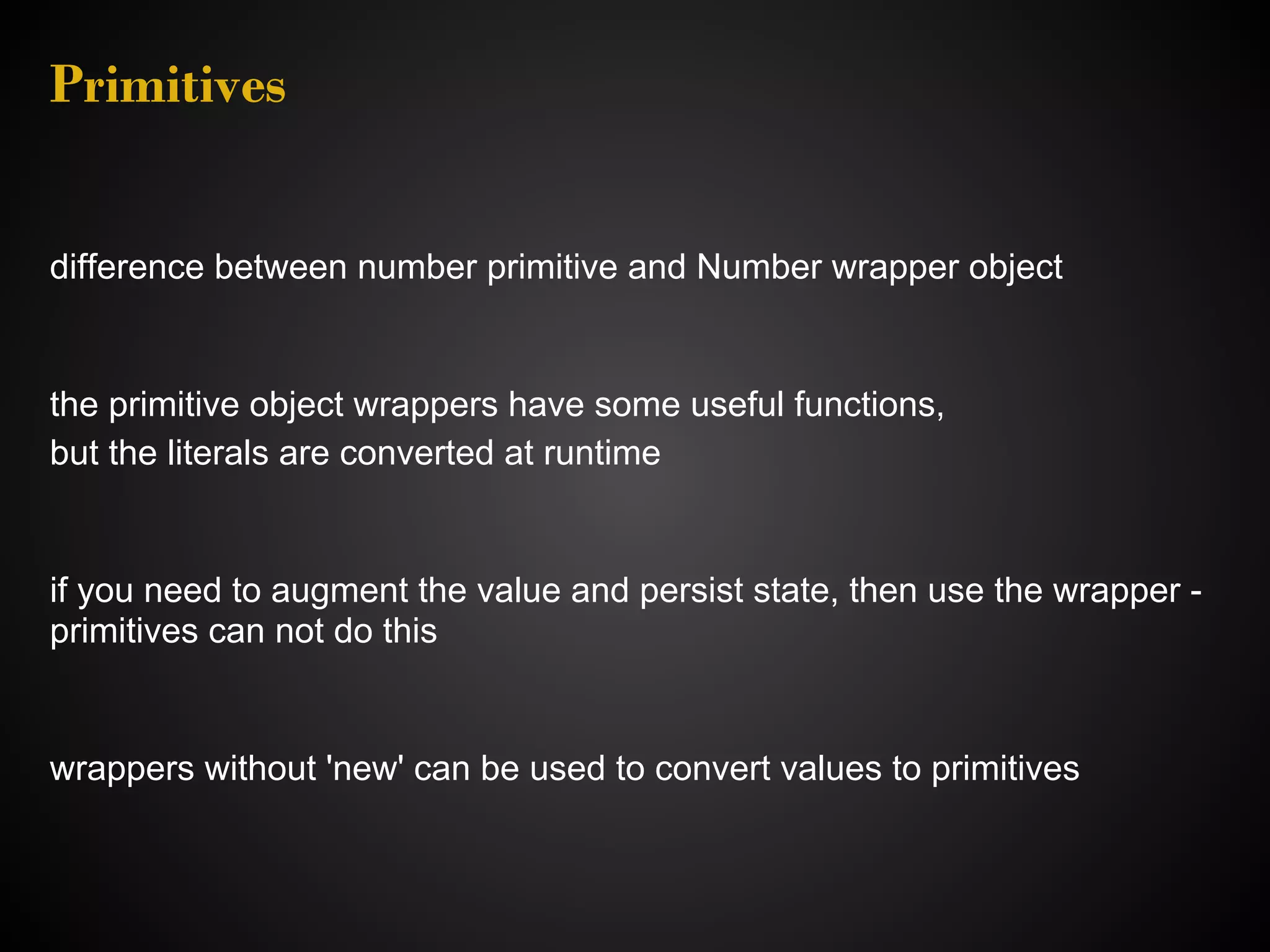This document discusses JavaScript patterns related to error objects, the console, minimizing globals, implied globals, deleting variables, accessing the global object, the single var pattern, variable hoisting, loops, types, literals, and primitives. It provides tips on throwing errors, using the console, declaring variables, loops, type conversion, and literals versus constructors.

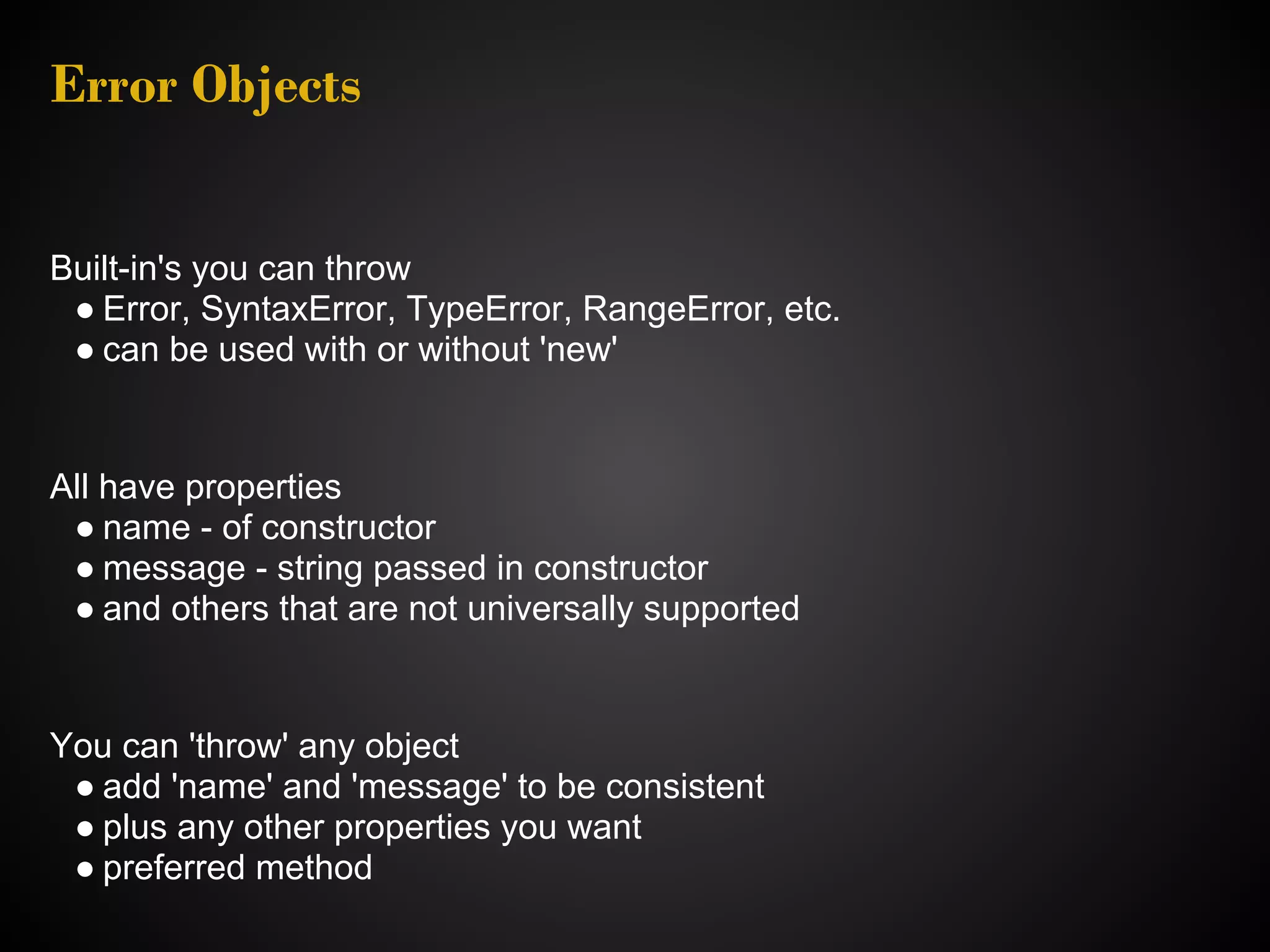
![The console
Use FireBug CommandEditor to experiment
LOG outputs traces
console.log("test", 1, {}, [1,2,3]);
DIR outputs enumerations
console.dir({one:1, two: {three: 3}});
ACCESS
window.name === window['name'];](https://image.slidesharecdn.com/javascriptpatterns-2-130118113116-phpapp02/75/JavaScript-Patterns-Part-2-3-2048.jpg)
![Minimizing Globals
myglobal = "hello";
● makes a property on window
console.log(myglobal);
● the global 'this' is implied
console.log(window.myglobal);
console.log(window['myglobal']);
console.log(this.myglobal);](https://image.slidesharecdn.com/javascriptpatterns-2-130118113116-phpapp02/75/JavaScript-Patterns-Part-2-4-2048.jpg)
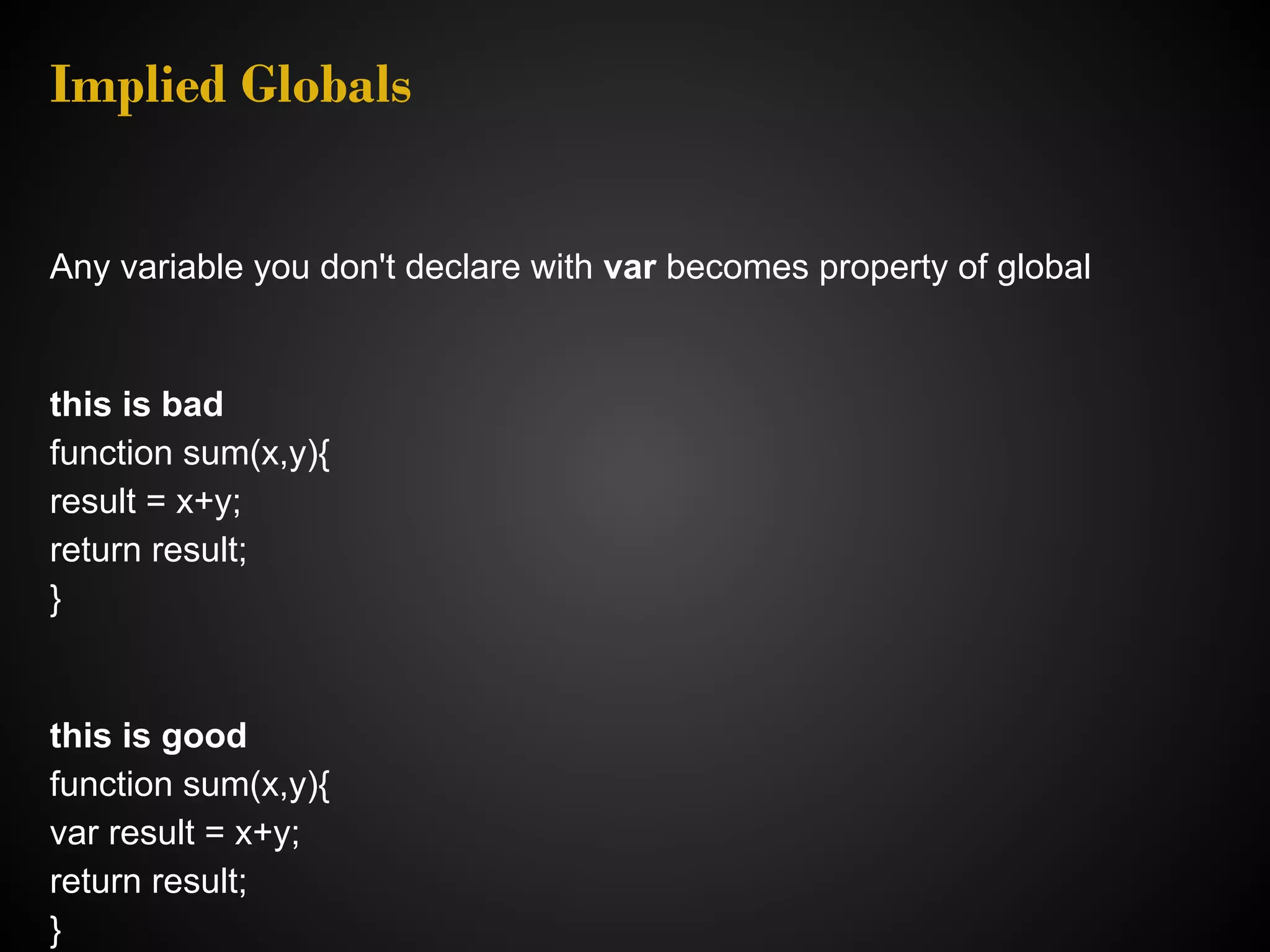
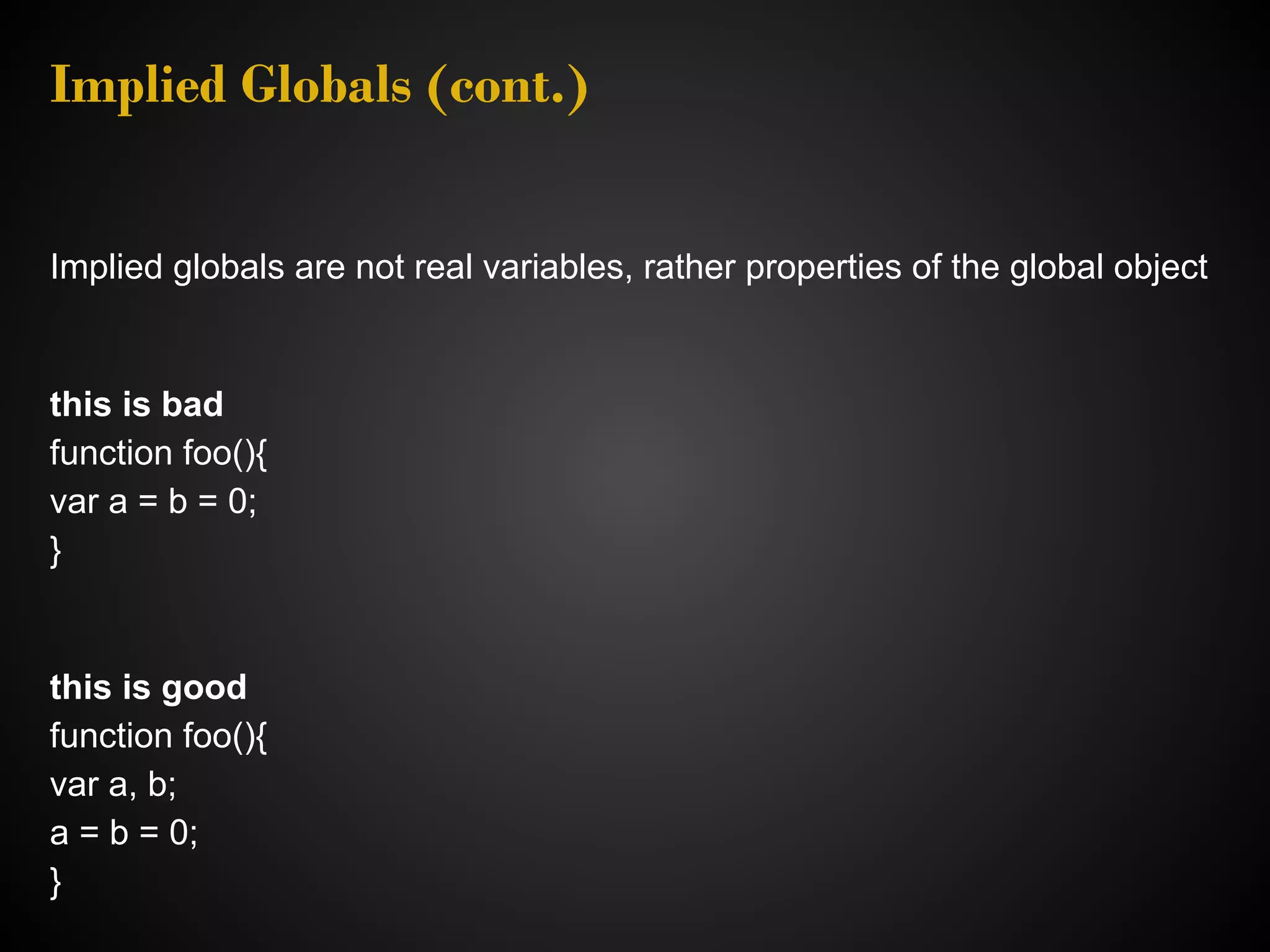
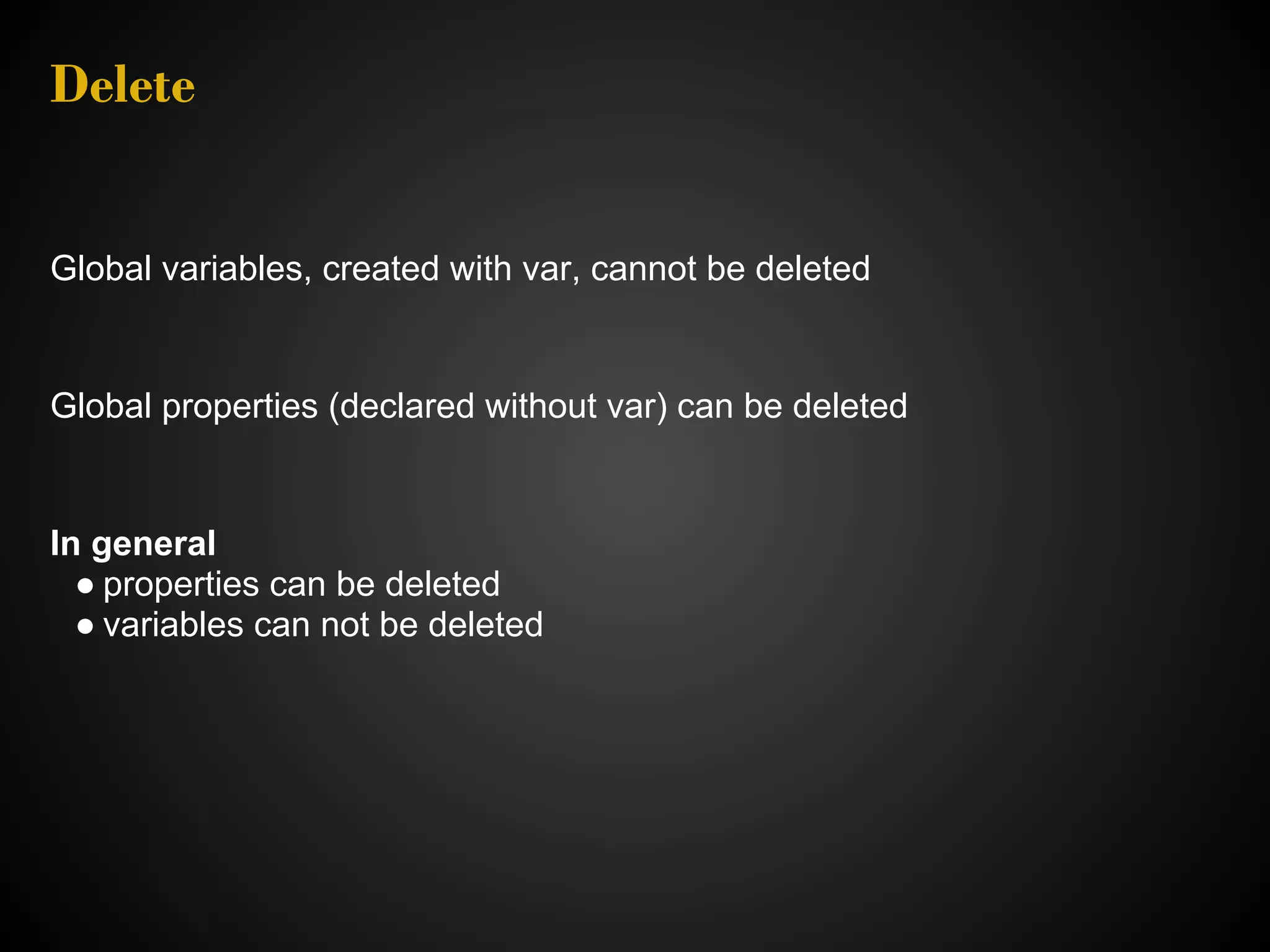
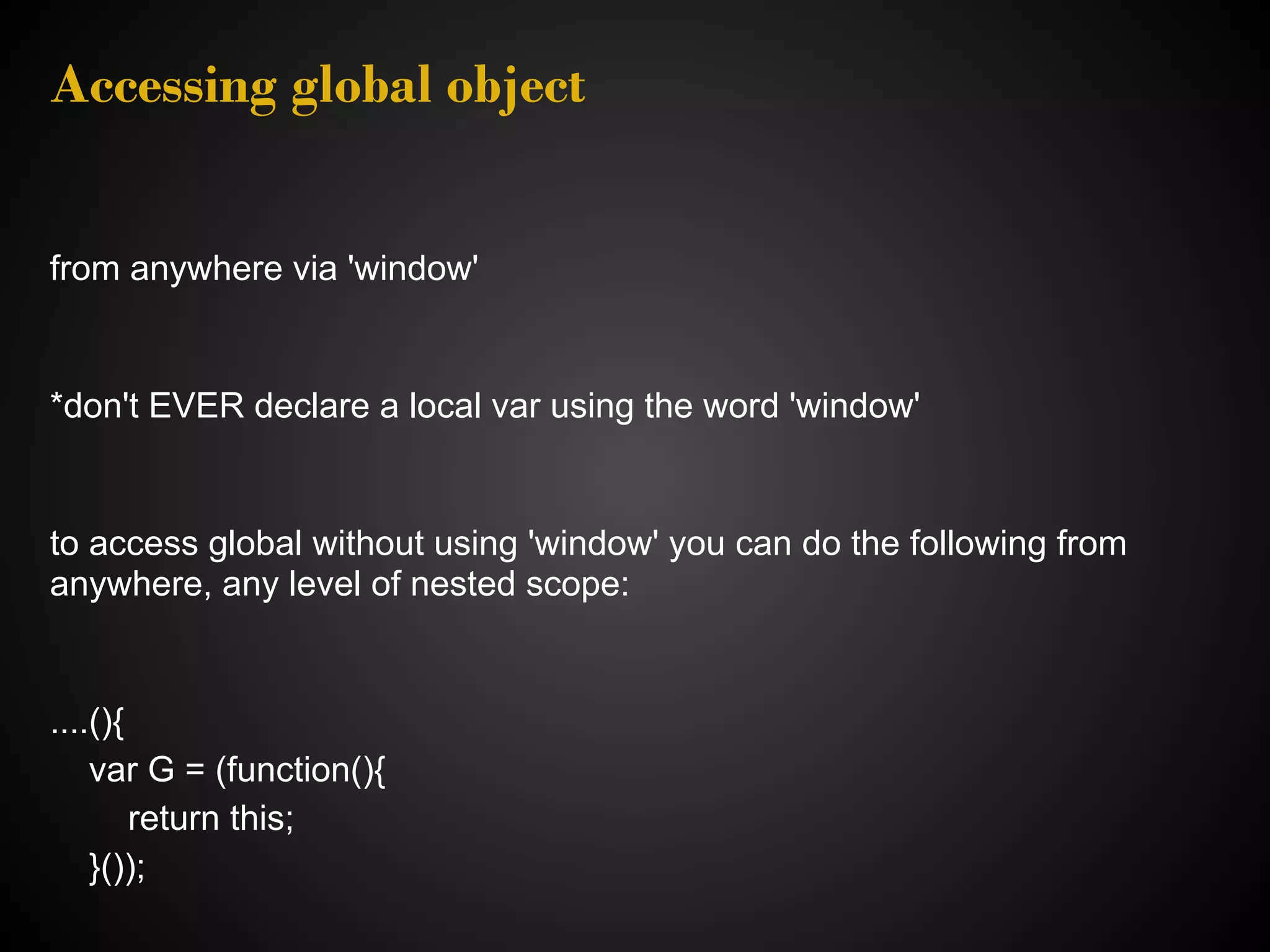
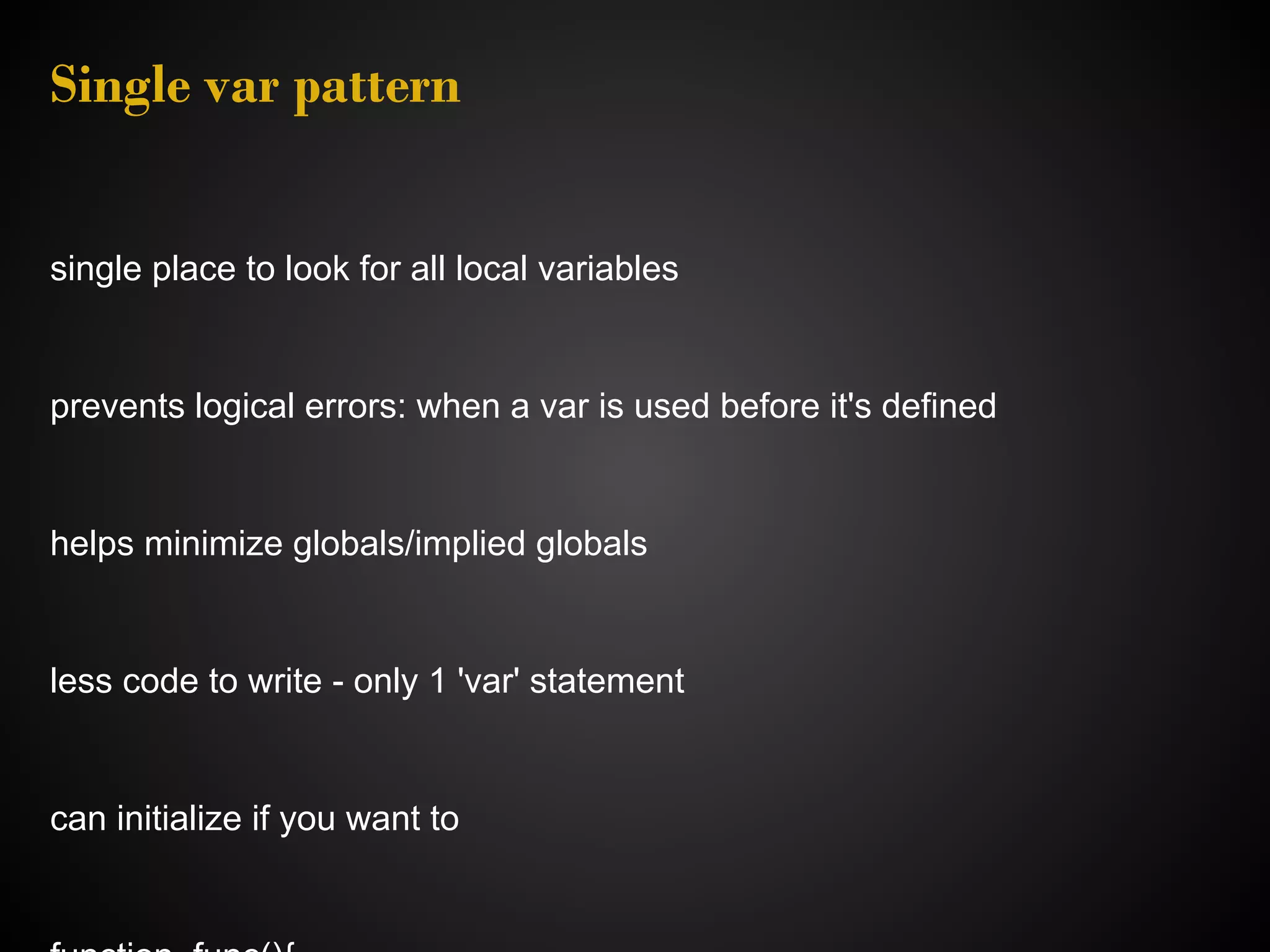
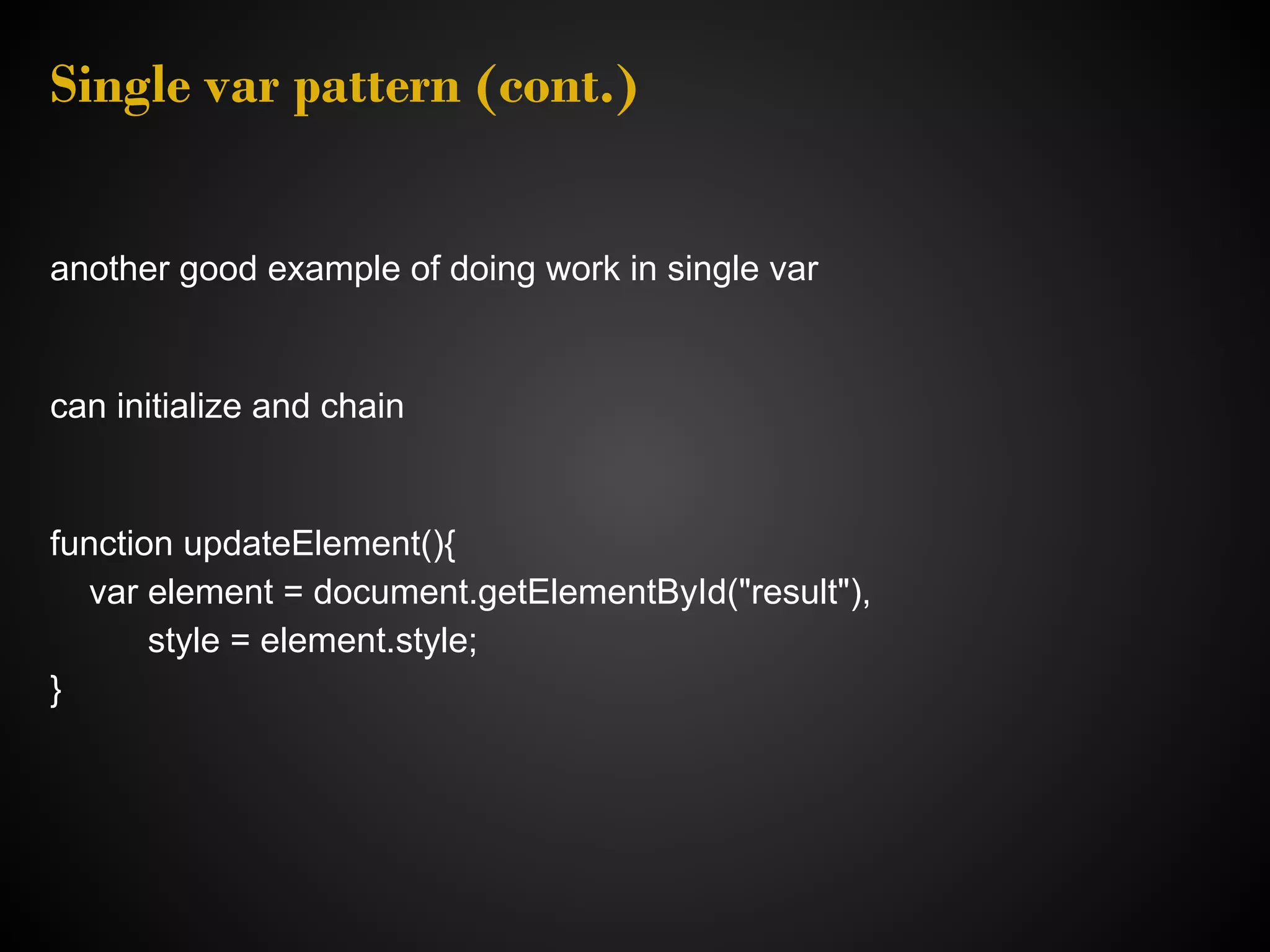
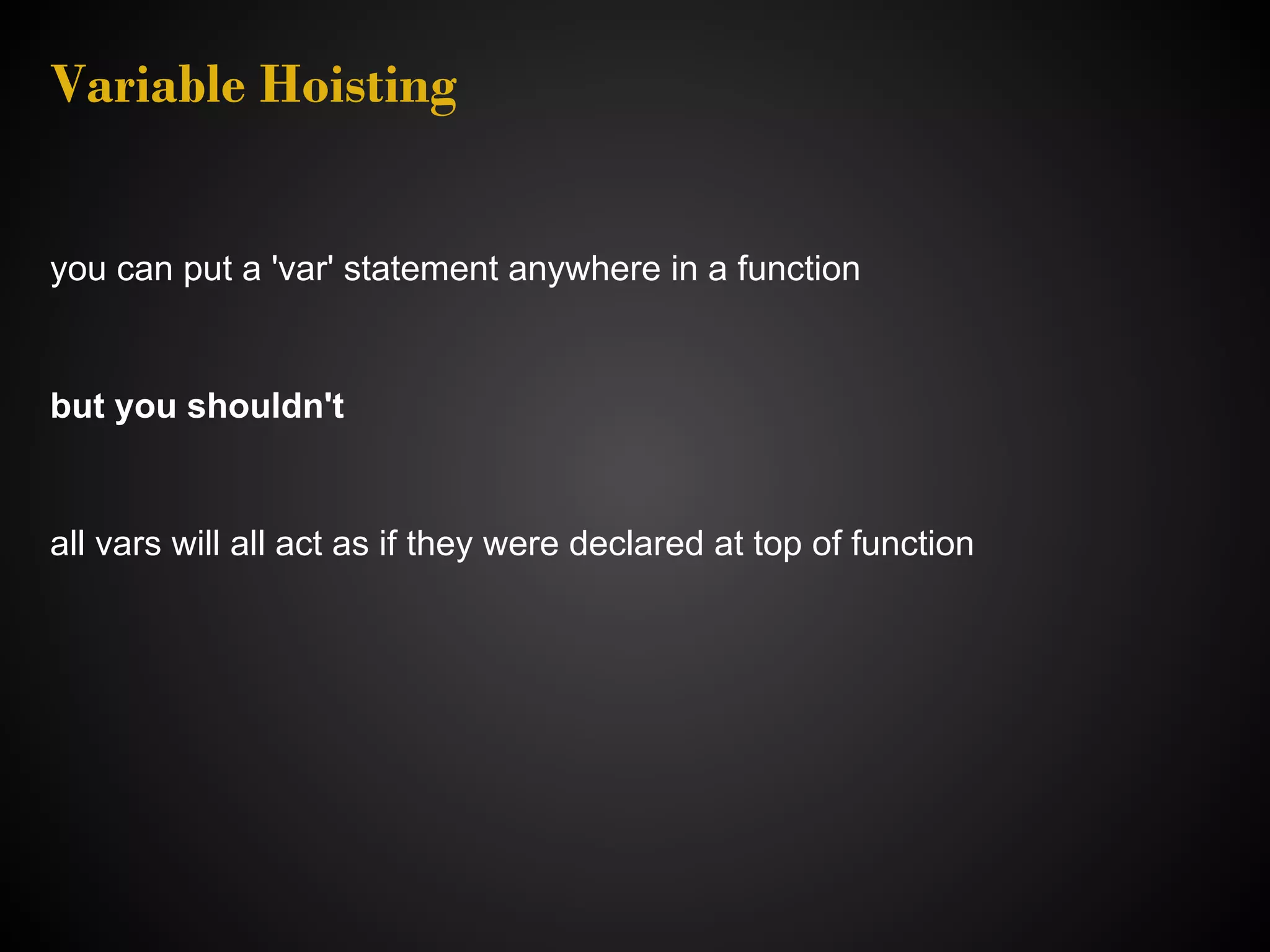
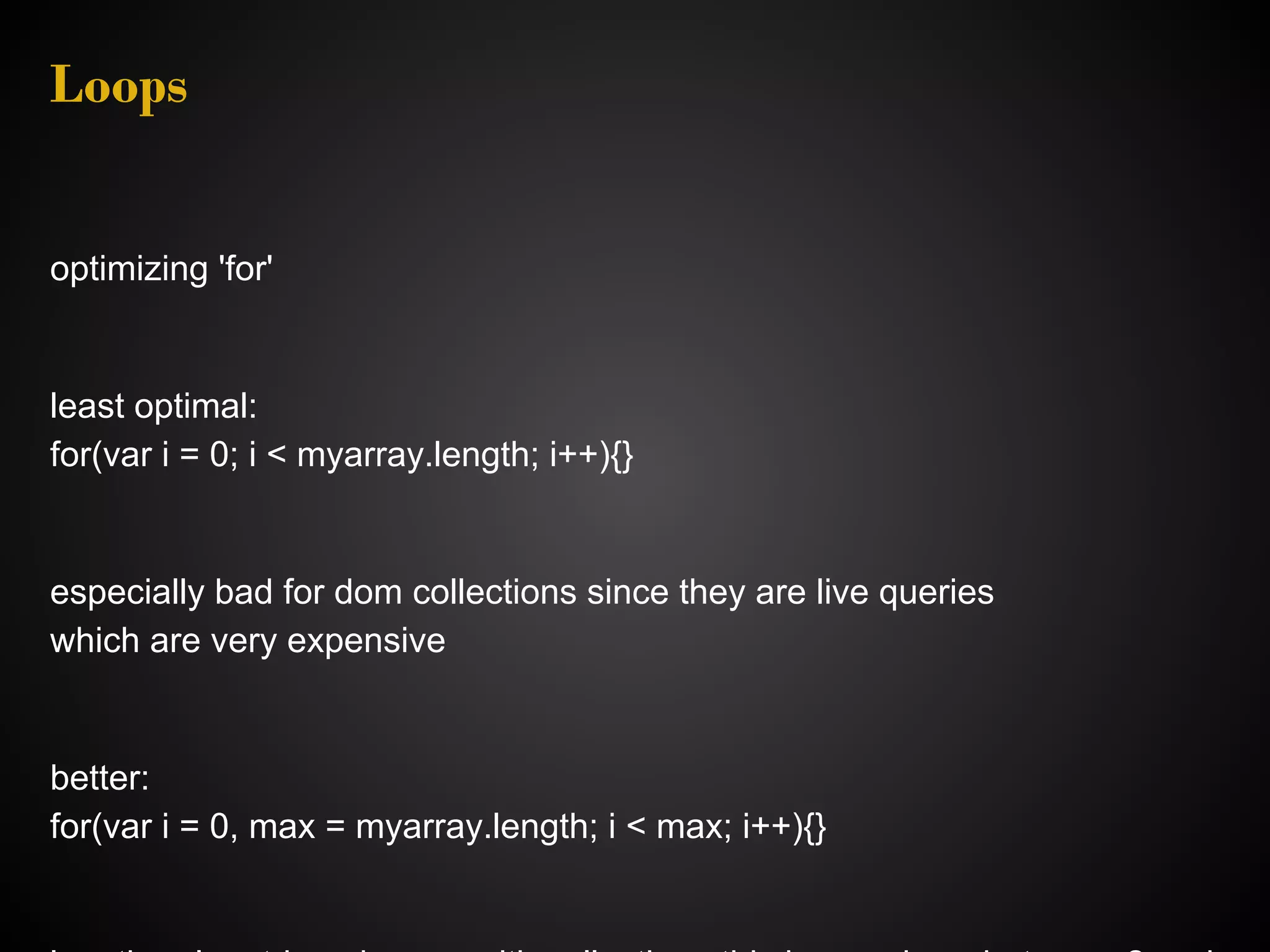
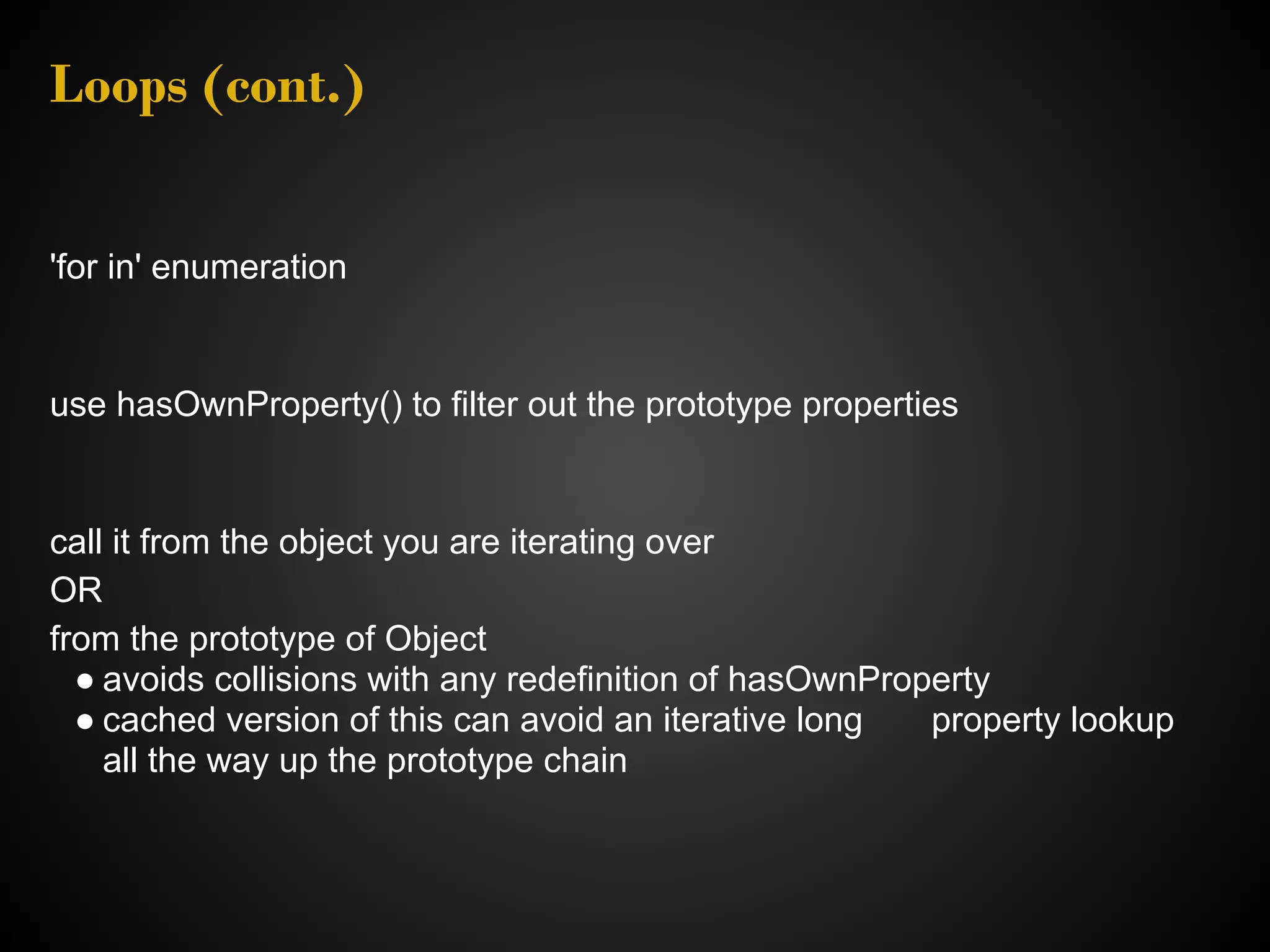
![Types
There are 5 primitives:
1. number
2. string
3. boolean
4. null
5. undefined
Primitives are NOT objects
○ no properties
○ no methods
○ however....there is temporary conversion
Literals are not necessarily primitives
● { } and [ ] are literals - not primitives
● "s", true, 3 are literals - are primitives](https://image.slidesharecdn.com/javascriptpatterns-2-130118113116-phpapp02/75/JavaScript-Patterns-Part-2-14-2048.jpg)
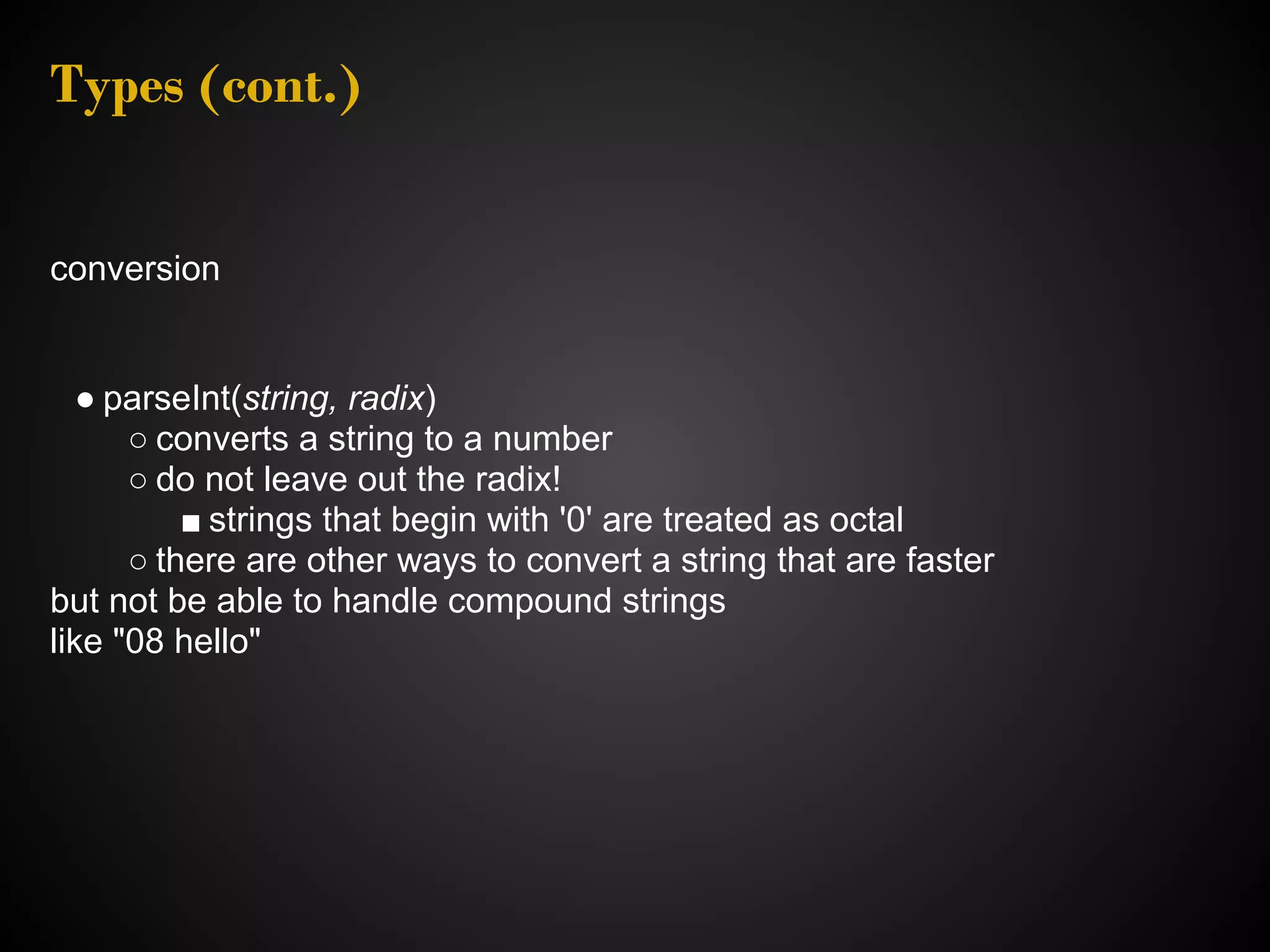
![Literals
{}, [], "", 3, true , / /
advantages over the built-in constructors
● more concise
● more expressive
● less error-prone
● emphasizes the fact that objects are mutable hashes, not classes
constructors can be deceitful
● new Object("hello") creates an object using the String constructor](https://image.slidesharecdn.com/javascriptpatterns-2-130118113116-phpapp02/75/JavaScript-Patterns-Part-2-16-2048.jpg)
